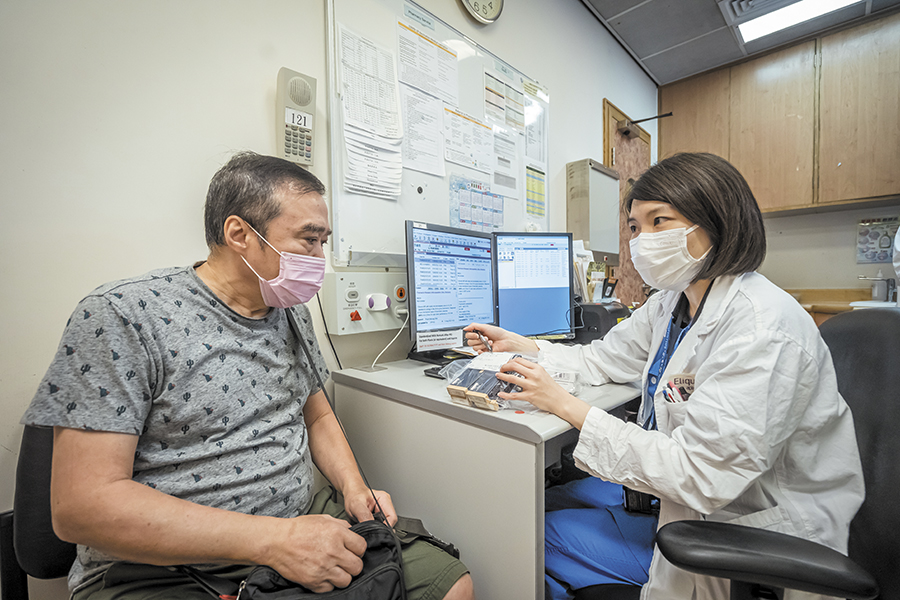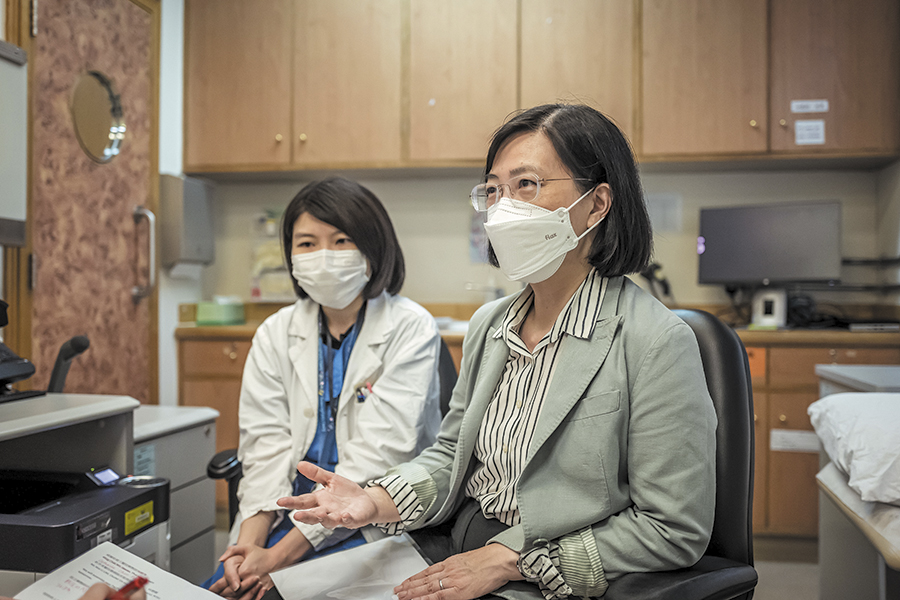Pharmacist Clinic gives patients peace of mind with personalised drug management
 Medication is an important part of the healthcare process. With the development of clinical pharmacy services, pharmacists are now actively participating in the provision of medical services for specialist outpatients. Pharmacist Clinic has been set up at the Prince of Wales Hospital (PWH) since 2018 to offer personalised drug counselling and assessments for patients with chronic diseases, relatively stable conditions as well as those who require special follow-up after adjustment of medication doses.
Medication is an important part of the healthcare process. With the development of clinical pharmacy services, pharmacists are now actively participating in the provision of medical services for specialist outpatients. Pharmacist Clinic has been set up at the Prince of Wales Hospital (PWH) since 2018 to offer personalised drug counselling and assessments for patients with chronic diseases, relatively stable conditions as well as those who require special follow-up after adjustment of medication doses.
One beneficiary of the Pharmacist Clinic – 72-year-old Mr Li suffers from heart disease and diabetes and has to attend regular follow-up appointments at Specialist Out-patient Clinic (SOPC). “In the past, I had to wait for more than six months before I could meet a specialist, but now I can have a consultation with a pharmacist in between my medical follow-ups,” he remarks. “A pharmacist checks on my recent health status, asks questions about my drug taking habits and whether there is any experience of drug side effects, and then advises me on proper management. I can get advice sooner for any questions I may have regarding my medication and health conditions.” He has attended the Pharmacist Clinic at PWH for seven times so far and is satisfied with the service.
Timely intervention can help save lives
The Pharmacist Clinic serves a range of patients, including those taking anticoagulants, with diabetes mellitus or chronic obstructive pulmonary disease. The pharmacists facilitate regular blood monitoring arrangements, monitor patients for any adverse drug reactions and adjust doses of medication when needed. In the case of patients taking anticoagulants, for instance, timely dose adjustments can help reduce the risk of strokes, thrombosis or other bleeding complications, thereby better controlling the disease.PWH Pharmacist Catherine Chan says, “pharmacists also provide guidance on the use of medication. Elderly patients often forget to take their medication or even take the wrong medication, and the consequences of that can be potentially severe or dangerous. We counsel them on the use of suitable tools such as pill boxes to reduce the risk of medication errors, and we assess patients’ technique for using the inhaled medications in order to enhance their medication compliance. Patients welcome this approach and, if we identify any deterioration or abnormality which requires urgent clinical attention, we would communicate with the specialist for timely follow-up with the patients.”

Easing pressure on SOPC
Through providing more comprehensive drug management and counselling for patients, the Pharmacist Clinic helps enhance the utilisation of other healthcare resources such as GOPC or A&E. This could potentially relieve the pressure on other frontline healthcare workers. Clinical Stream Coordinator (Pharmacy) of New Territories East Cluster Lim Wai-li explains, “with an ageing population, the pressure on SOPC services is mounting, and the waiting time for new cases is longer. Pharmacist Clinic service can support the management of stable chronic disease patients according to the protocols of different specialties, so that SOPC can devote more time and manpower to the care of new cases and patients in unstable conditions, and thus ease the waiting time issue.”Lim expects the development of Pharmacist Clinic to be gradually extended to other hospitals to make the best use of resources to divert patients, adding that the possibility of tele-consultations is also being explored to provide quality medical services to patients while they are staying at homes.